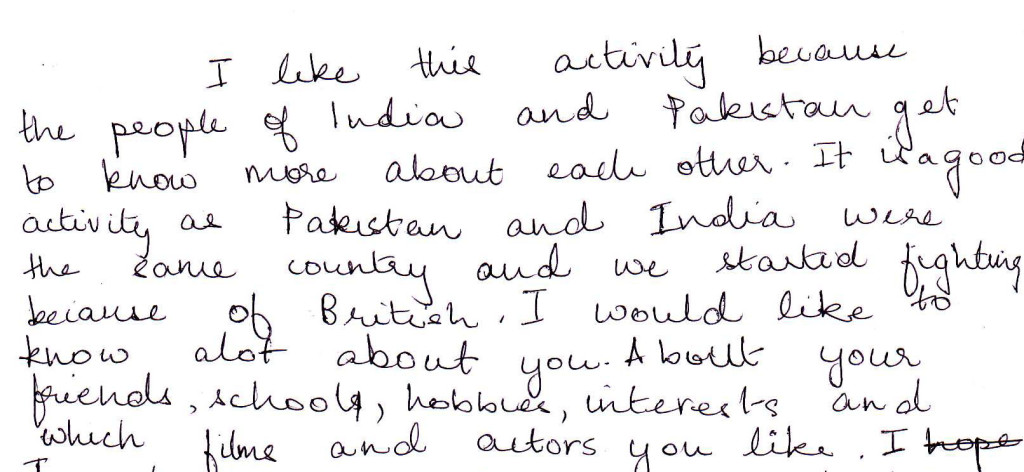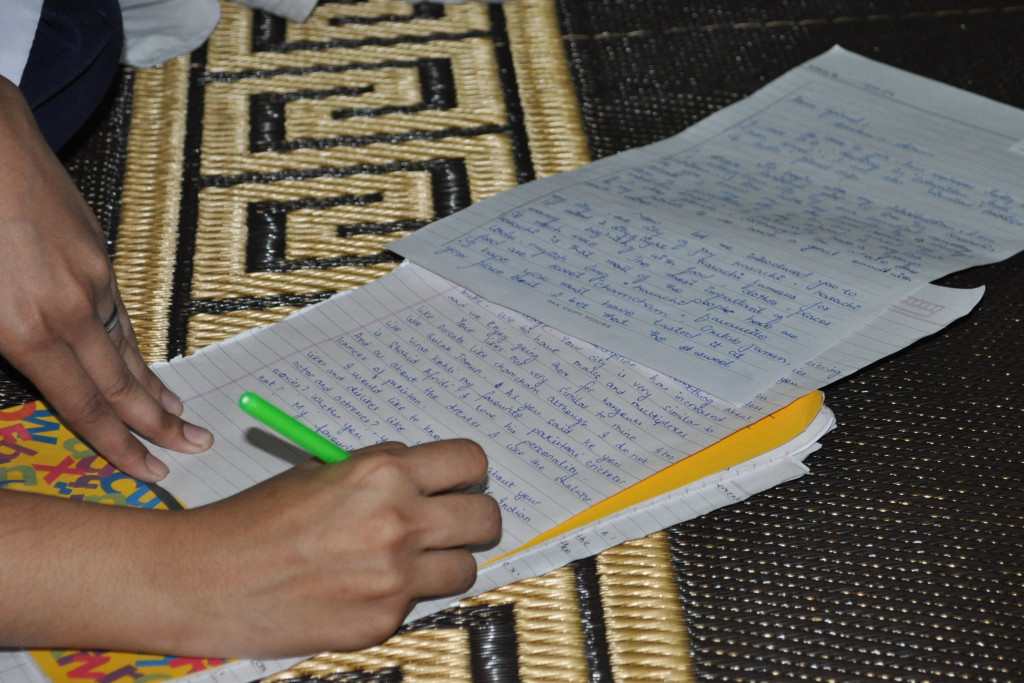‘We share the same air and the same soil’, writes one of the students participating in the Exchange for Change program, words that resonate powerfully.In the wake of one of the most heinous crimes in recent history, an exchange program between the youth, and the future of two countries currently caught in a spiral of conflict, seems to just make sense.
During a discussion at a school in Kolkata, one of the students said that very often what we think has been ingrained in us by adults. Those who claim to know ‘better’. Truer words never spoken. It is these mindsets that are perhaps the most dangerous.
When adults, people who are held in some degree of esteem, do not find it in themselves to blur the lines between “us” and “them”, and to whom differentiating people on the basis of community and religion is normal, then who do young, impressionable minds look to? Is it the media, books, the Internet? Or is it to each other? Could it be through creating a space for meaningful dialogue and exchange by minimising the presence of individuals who have fixed notions, thereby allowing young people to reach their own conclusions?
Exchange for Change attempts to do just that.
When young people communicate with each other, through the extremely personal, age-old method of letter writing, about matters ranging from their favourite T.V stars, shopping and sports to partition, religion and terrorism, they also help to break down rigid mindsets and open each other’s minds to perspective.
What are borders? The workshops held in the participant schools began with a screening of the video “Pause” by the Dear Neighbour project, followed by a discussion on borders—physical, as well as those existing in our minds. When asked what we can do to be rid of these borders, students suggested communicating, with each other as well as on the larger scale, with people across the physical border. They then read their letters from students in Karachi and were asked to share interesting points. The joy on the faces of the students when they read that their pen friends on the other side of the border have the same likes and dislikes, whether it be the food that they eat and the movie stars that they like to corruption and pollution is a sight to see. One student asked us “why are you asking only some of us to share the letters we have received? Don’t you think that we should all share? I am sure all the letters are good!”
There have been letters from both Kolkata and Karachi that have spoken about ‘sensitive’ issues that could have led to anger and deeper mistrust. These letters have been dealt with maturity and the innate sense that children have that this is a chance to right a wrong.
There is the partition that is spoken about in history textbooks; there are the stories that our elders tell us, and there is cinema that also talks about the controversy between the two countries. What is important for one to realise is that these are all viewpoints and it is important to understand that there are two sides to the same coin. We hope that the year long program will allow students in school to go through the journey of finding out about perspectives on their own and to break free of imposed mindsets, developing the powerful ability of thinking their own thoughts. For who are we to tell them who to love and who to hate?
– Paroma Sengupta


